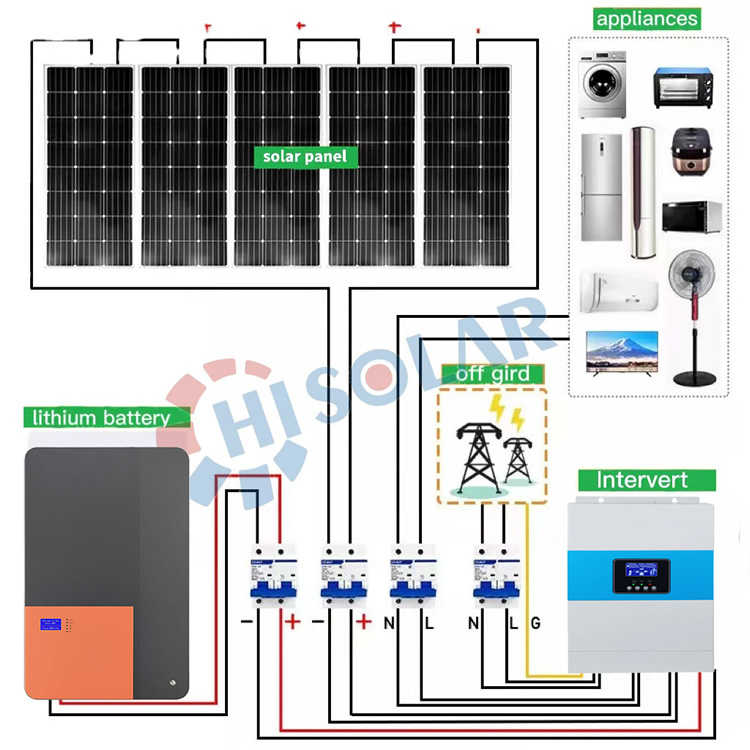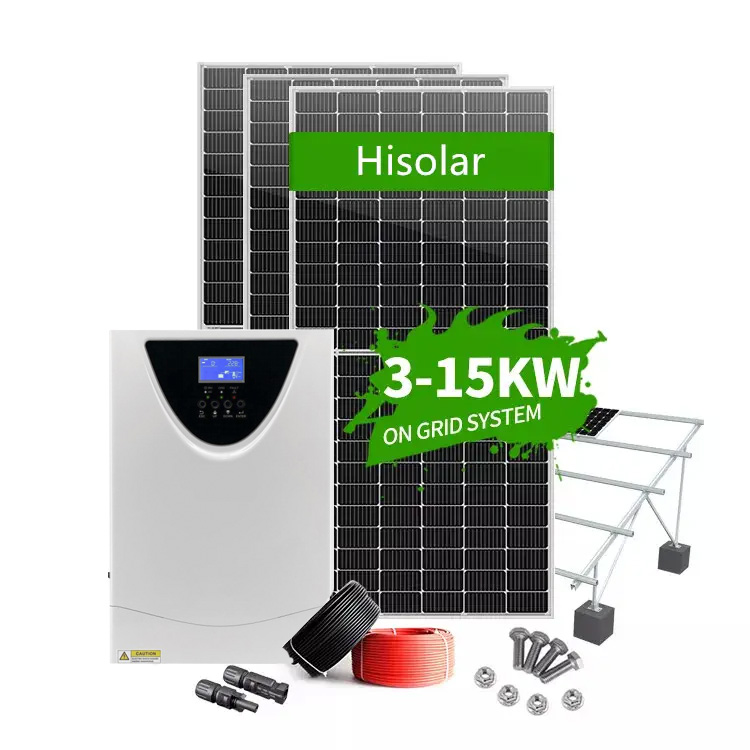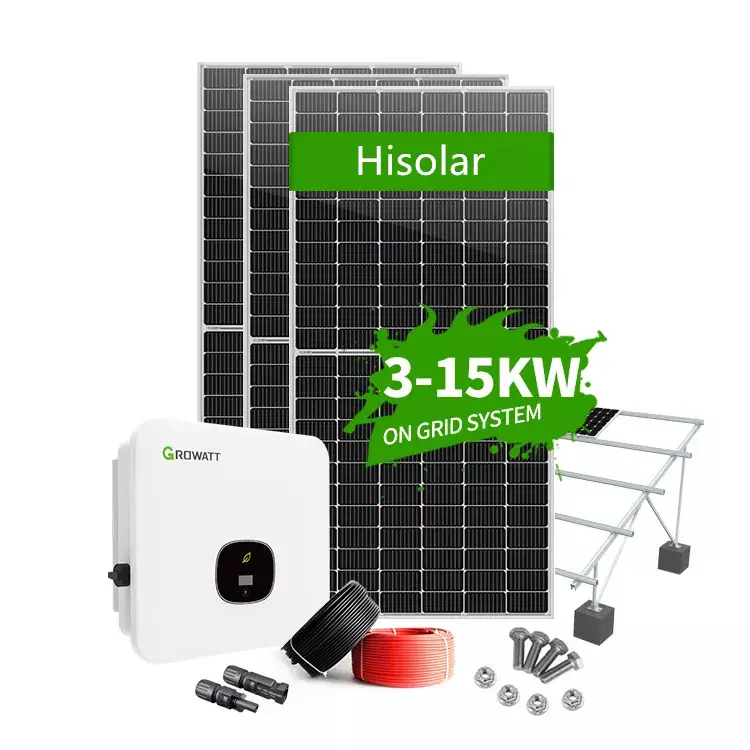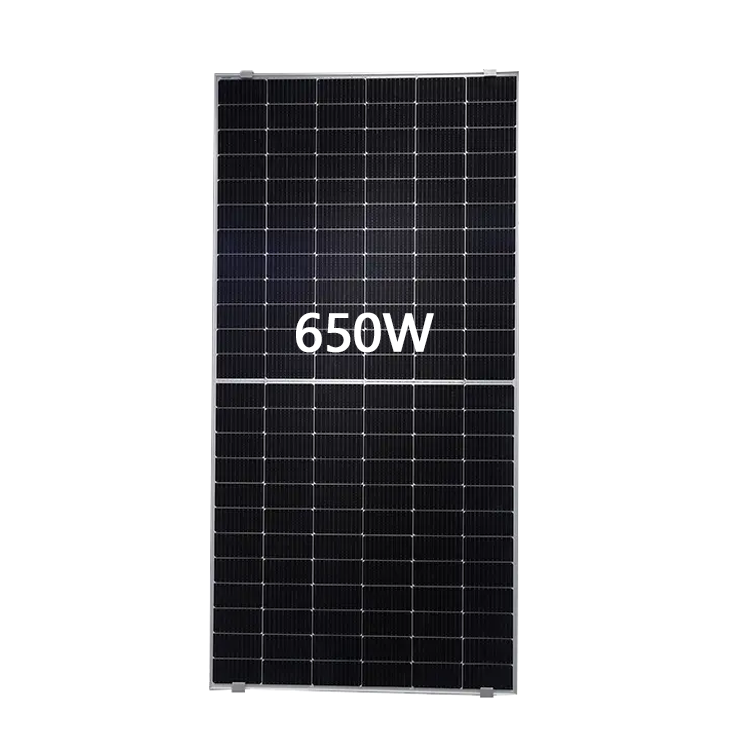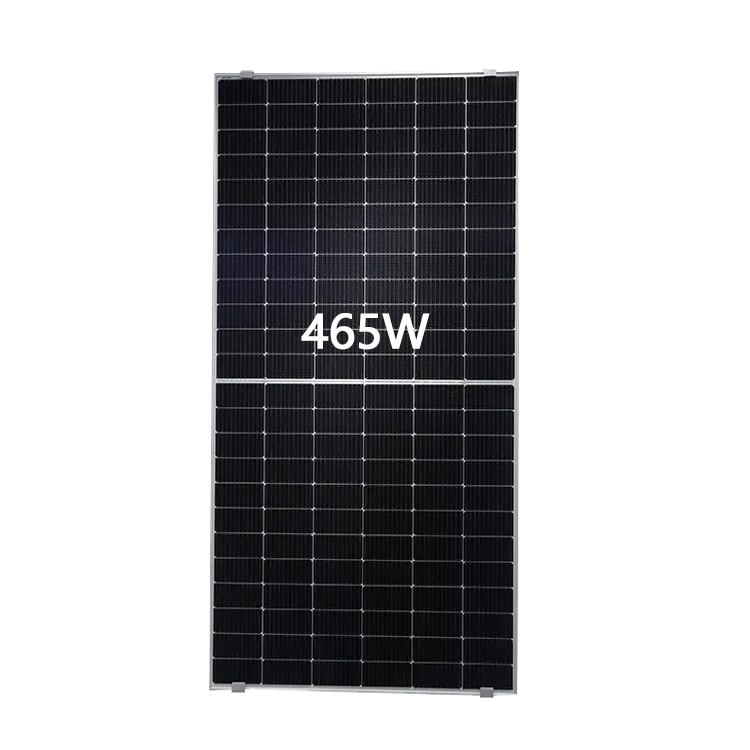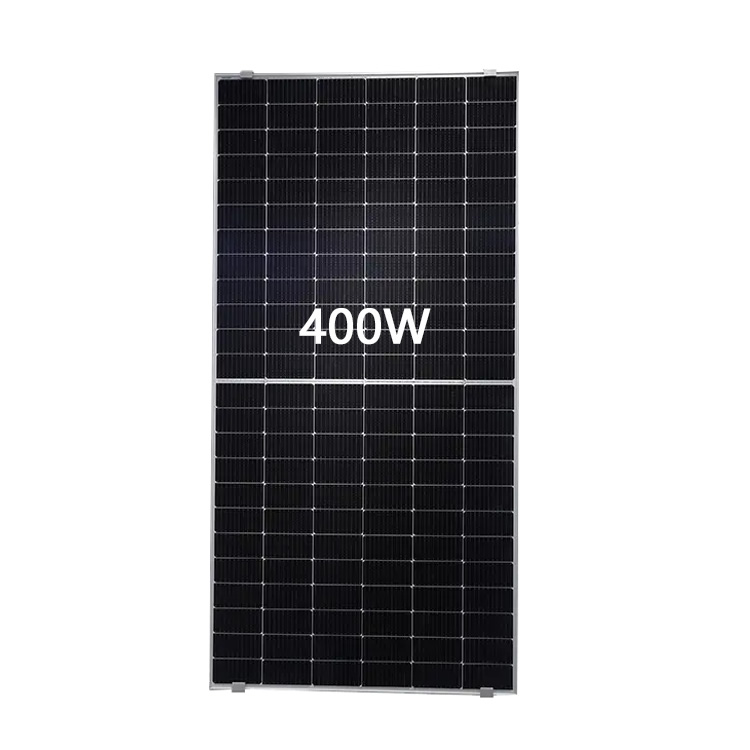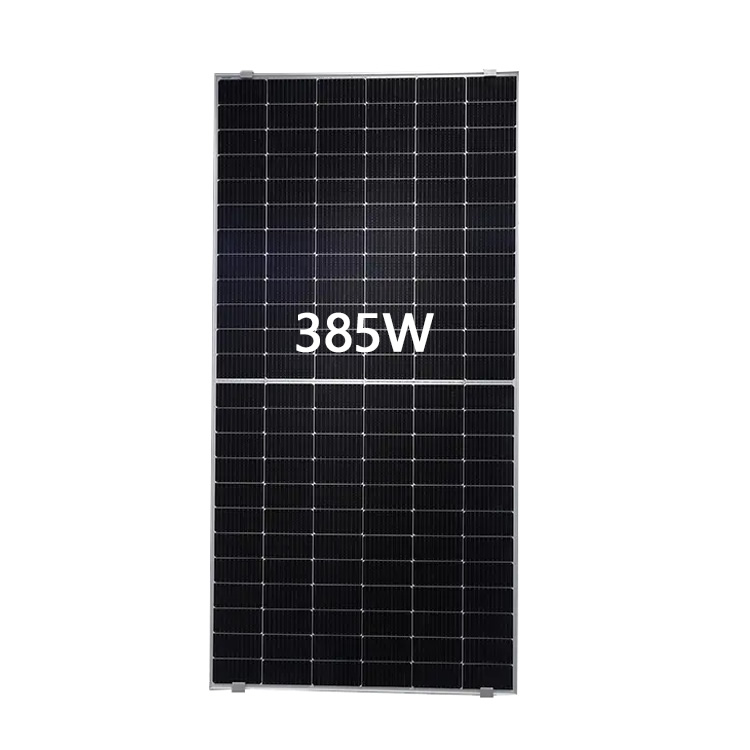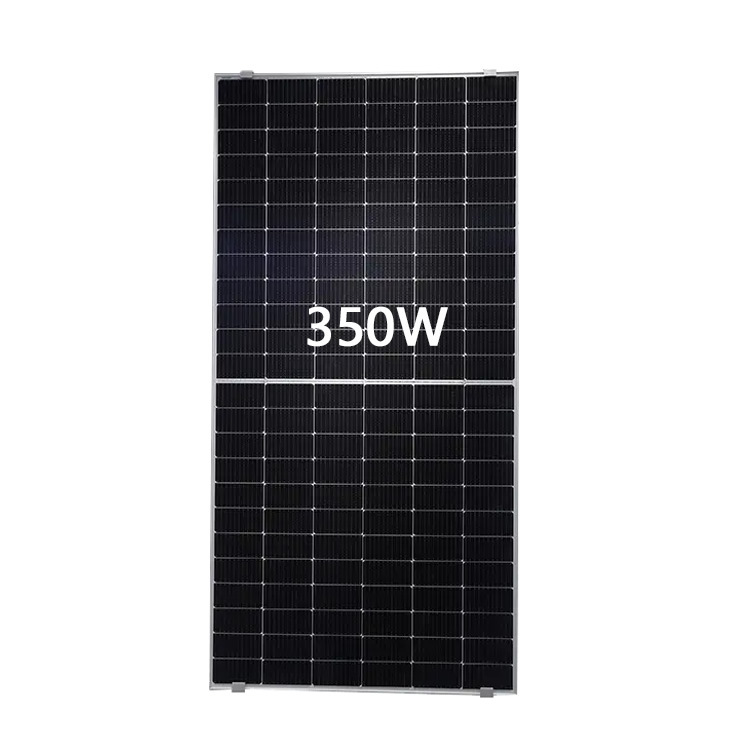How lithium-ion batteries works?
What is a lithium-ion battery? What features does it have?
A lithium-ion battery is a type of rechargeable battery that is charged and discharged by lithium ions moving between the negative (anode) and positive (cathode) electrodes. (Generally, batteries that can be charged and discharged repeatedly are called secondary batteries, whereas disposable batteries are called primary batteries.)
Because lithium-ion batteries are suitable for storing high-capacity power, they are used in a wide range of applications, including consumer electronics such as smartphones and PCs, industrial robots, production equipment and automobiles.
Do all lithium-ion batteries have the same performance?
Lithium-ion batteries are divided into various kinds according to size, form, the material used for the positive and negative electrodes, and so on.
Our industrial lithium-ion battery uses lithium titanium oxide on the negative electrode, and provides a long life, rapid charging, high input/output power performance, excellent low-temperature operation, and a wide effective SOC range.
How do lithium-ion batteries store energy?
lithium-ion battery is composed of 1) the anode and the cathode; 2) a separator between the two electrodes; and 3) an electrolyte that fills the remaining space of the battery. The anode and cathode are capable of storing lithium ions. Energy is stored and released as lithium ions travel between these electrodes through the electrolyte.
When storing energy (i.e., during charging)
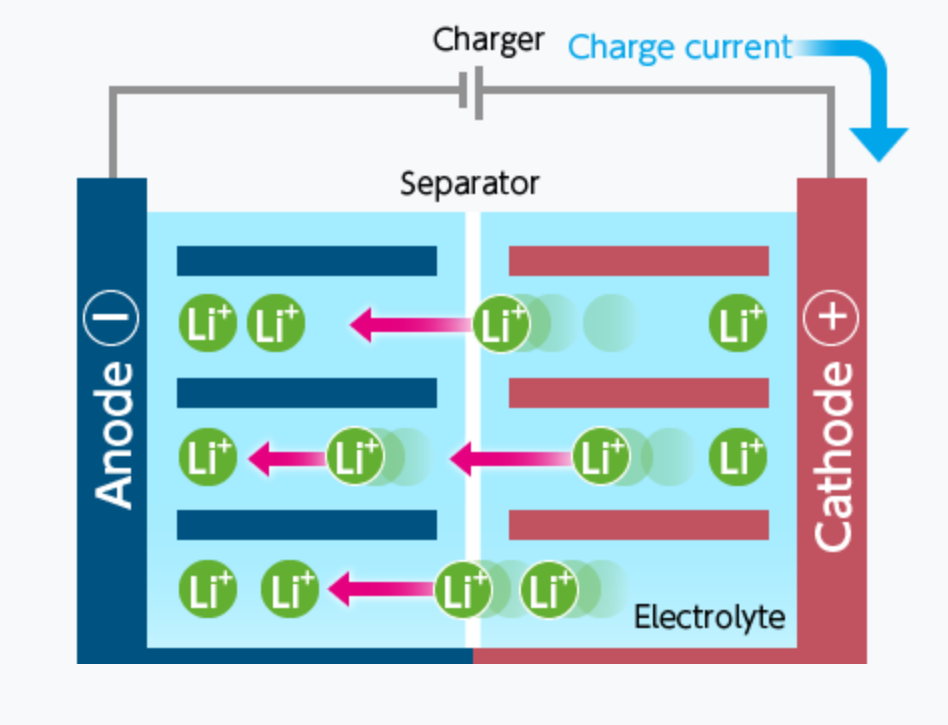 The charger passes current to the battery.
The charger passes current to the battery.- Lithium ions move from the cathode to the anode through the electrolyte.
- The battery is charged by a potential difference between the two electrodes.
When using energy (i.e., during discharging)
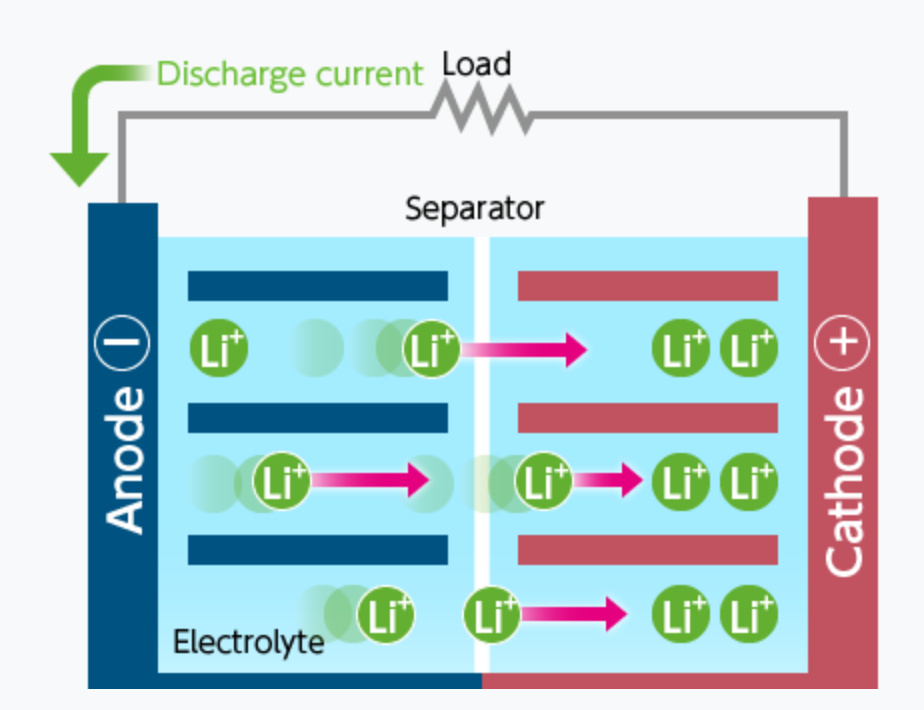
- A discharge circuit is formed between the anode and the cathode.
- Lithium ions stored in the anode move to the cathode.
- Energy is used.
-
How do lithium-ion batteries compare with lead-acid ones?
Generally, lithium-ion batteries are lighter and can be charged more rapidly than lead-acid batteries.
And lithium-ion batteries are more environmentally friendly since they don't contain any substance with a high environmental load.
